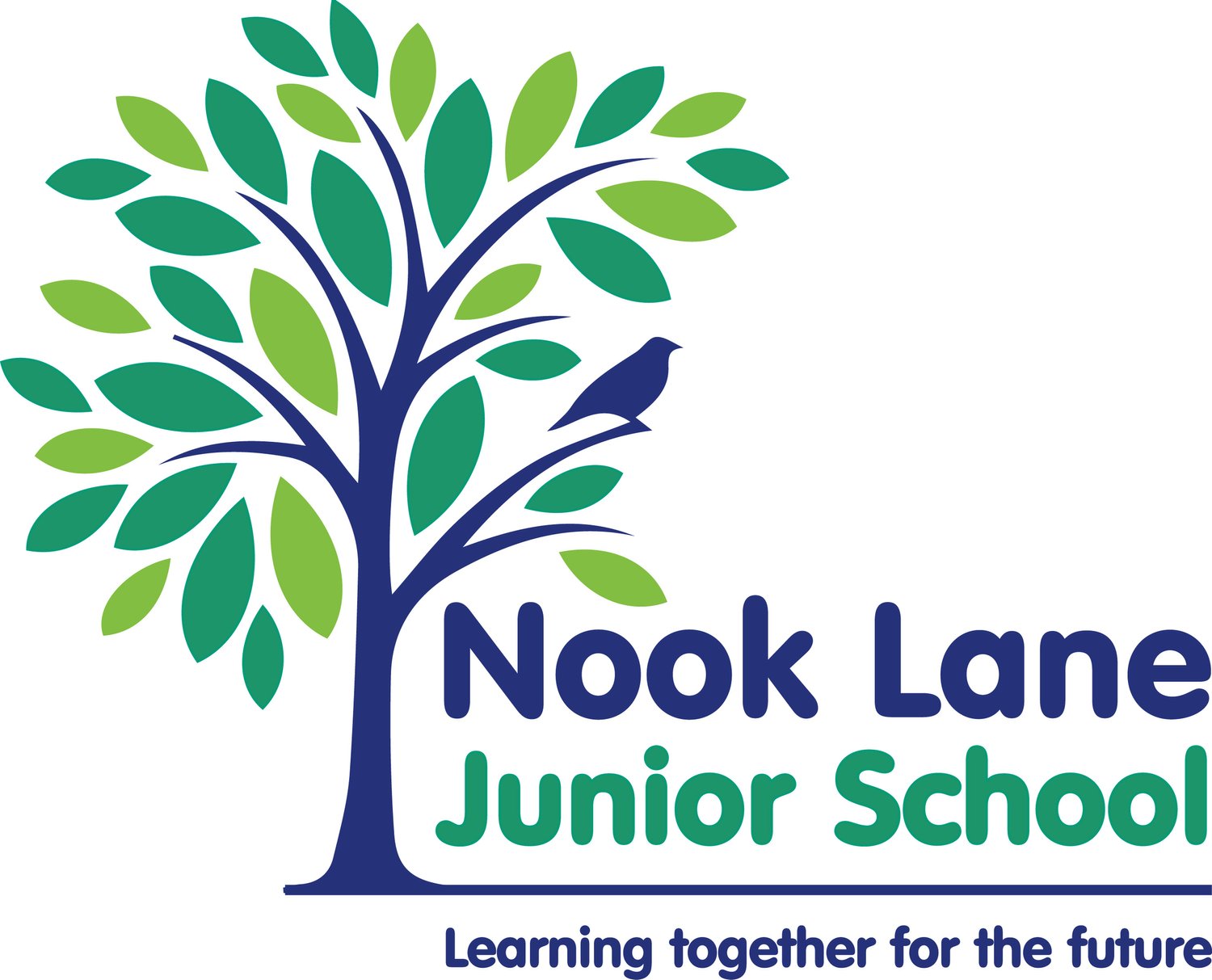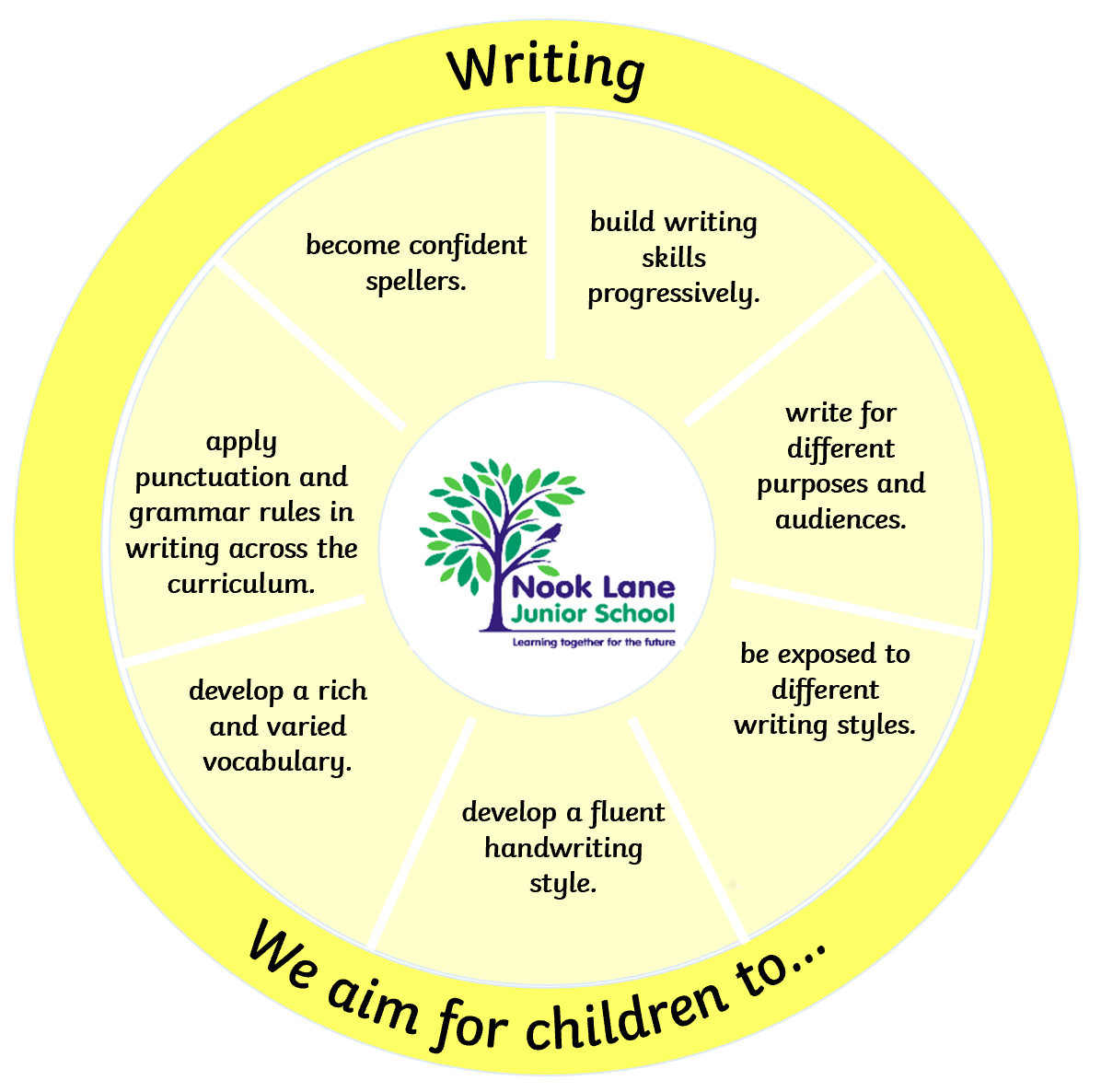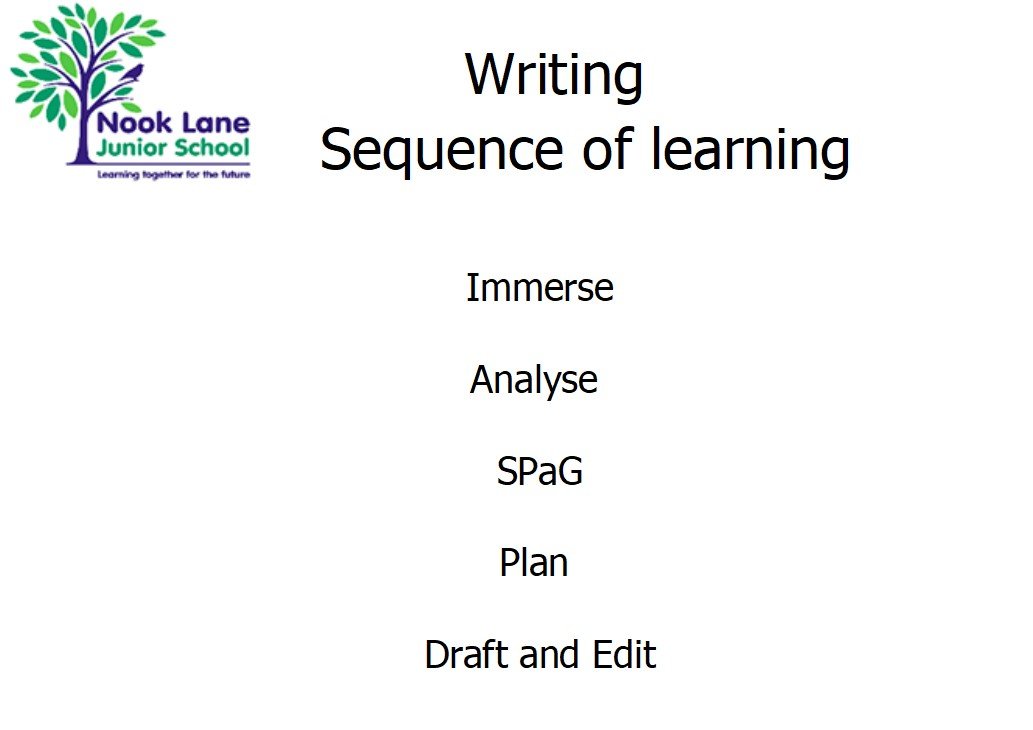
“You can make anything by writing.”
- C . S . Lewis
Writing vision
Writing is at the centre of our curriculum at Nook Lane. We are passionate about children becoming lifelong writers who use writing as a vehicle for creativity and want all children at Nook Lane to be able to express their thoughts and ideas clearly through the written word. Although writing is delivered in discreet sessions, we make strong links across the curriculum, ensuring that children apply their wider knowledge to what they are writing and vice versa. Children are immersed in vocabulary throughout the curriculum and are encouraged to use this vocabulary in everything they write. By the time they leave Year Six, children will have developed a love for writing as well as the skills needed to write accurately for a range of purposes and audiences using appropriate vocabulary and grammar to enhance their writing. We create resilient and independent writers who are able to reflect on, edit and improve their work. By matching teaching techniques and strategies to a range of learning styles, we strive for an enriched and inclusive writing curriculum fostering a culture of enjoyment, engagement and high expectations.
Approach to teaching writing
Writing is taught in the ‘Immerse, Analyse, SPaG, Plan, Draft and Edit’ sequence.
Punctuation, grammar and key spellings (tier two and three vocabulary) concepts are identified at the beginning of each unit and focused on throughout to enable children to write effectively for the intended purpose and enable them to demonstrate the skills they have learned in their writing.
Writing is taught progressively across year group using the ‘Writing Purpose Progression: Skills and Knowledge’ and the Writing Subject Booklet documents which outline the text types, grammar, punctuation, spelling and vocabulary needed to write for each writing purpose (inform, explain, entertain, persuade, discuss) in each year. The progression in each of these areas for each writing purpose and the fact that each writing purpose is revisited in each year group ensures children commit knowledge of each writing purpose to their long-term memory. Staff use their expertise and knowledge of their children to create units of work which cover a range of these writing purposes across the year. Planning and outcomes are monitored by the English lead to ensure there is coverage of these purposes and text types across the school.
Writing is taught four times per week in every year group in two to three week units in order to expose children to a wide range of different text types and writing purposes across each year.
We give children the opportunity to apply the skills they have learned in writing sessions to writing across the curriculum. Expectations of handwriting, spelling, punctuation and grammar across the curriculum are of the same high level as during writing sessions.
Children are expected to apply the Nook Lane ‘Must-Haves’ in all of their writing.
We provide a vocabulary rich environment for our children through the use of continually updated working walls, vocabulary displays, word mats and the discreet teaching of vocabulary. Exposing children to and explicitly teaching tier two and three words ensures children build a rich and varied vocabulary and are able to apply this to their writing.
Spelling rules are taught using the Read, Write Inc Spelling program at least three times per week in each year group with children accessing the spelling group which matches their spelling age or small group phonics sessions if required. Please see the Read Write Inc Spelling programme overview and Writing Subject Booklet for long term planning and progression.
Handwriting
The school has devised its own handwriting scheme in collaboration with Stannington Infant School. Children are taught the joins outlined in our scheme and encouraged to use this joining style throughout their work. When children are confident and showing pride in their presentation, they are allowed to write with black handwriting pens. All pupils are encouraged to use a pen in Year 6. Where possible, motor skill interventions are used to support struggling children, as are pencil grips, slope boards and home-school support materials.
Impact
Lessons are taught progressively from one year group to the next ensuring that children build on concepts taught in previous years to ensure the vast majority are writing at the Expected standard or above for a range of different purposes.
Children develop and are able to identify the skills needed to write effectively across a variety of audiences, purposes, writing styles and genres.
Children use a rich and varied vocabulary in both their written work and in discussion.
Children write fluently and in a cursive style.
Children express their creativity through writing, develop a lifelong passion for writing and are able to express their ideas clearly through the written word.
Children become reflective writers, able to edit their work effectively.
Overviews of learning
Leadership
If you have any questions about our science curriculum, please contact Mr Cornelius, our English leader.








